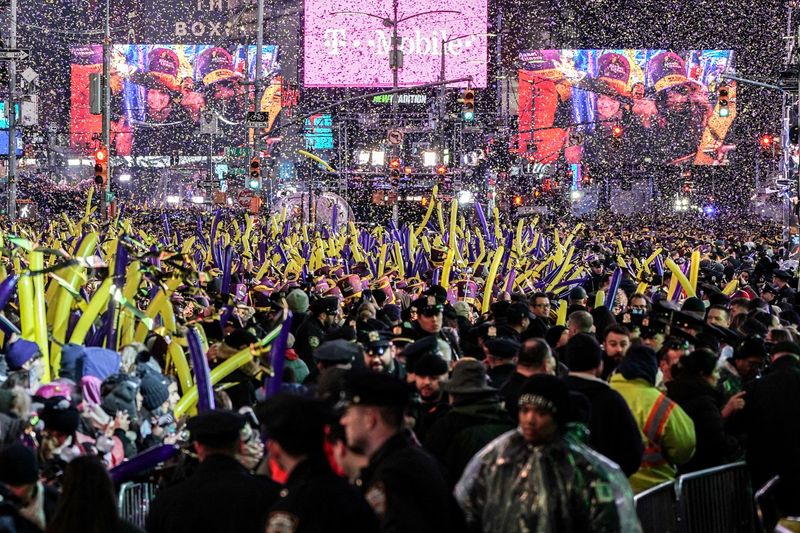By Kanishka Singh
(Reuters) - New York will sharply limit the number of people it allows in Times Square for its New Year's Eve celebration, Mayor Bill de Blasio said on Thursday, in response to a surge of new coronavirus cases fueled by the highly contagious Omicron variant.
For a second year in a row, the virus that causes COVID-19 is casting a shadow over the festivities, which typically draws huge crowds to the famed intersection in midtown Manhattan. After hours of live entertainment, the evening culminates with the dropping of a giant crystal ball at midnight, signaling the start of the new year. Millions of others around the world watch on television.
This year, the city will allow only about a third of the usual number of partygoers inside the dozens of fenced-out viewing areas set up in the square, allowing for greater social distancing. Partygoers will have to show proof of full vaccination and wear masks.
"Normally hosting approximately 58,000 people in viewing areas, this year's celebration will host approximately 15,000 people," de Blasio said in a statement.
In addition, admission to the viewing areas will begin at about 3 p.m., later than in past years.
Last year, when COVID-19 vaccines were in the early stages of rolling out, the celebration was open to only a handful of invited guests, including essential workers and their families.
For decades, tens of thousands of merrymakers - many of them tourists - have filled the blocks around Times Square on New Year's Eve, standing for hours in the cold waiting to see the glittering ball glide down a pole mounted atop a skyscraper in the year's final seconds. When the ball reaches the bottom, the crowds erupt in hugs, kisses and good cheer.
COVID-19 infections have surged in the United States in recent days due to Omicron, which was first detected in November and now accounts for approximately 73% of cases across the country and as many as 90% of cases in some areas, such as the U.S. Northeast and Southeast.

New York City Mayor-elect Eric Adams, who will take office in January, supported the measures announced on Thursday by de Blasio. Adams said his administration would monitor the situation and take additional precautions in the coming days if needed.
Earlier this week, Adams said he was postponing his inauguration ceremony, which was set for Jan. 1, due to the rise in cases of the Omicron variant.